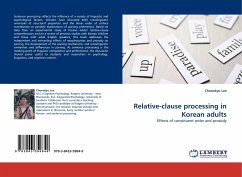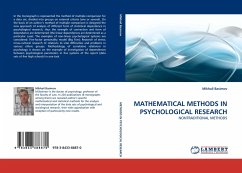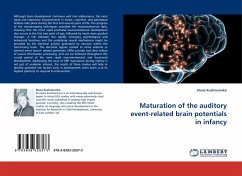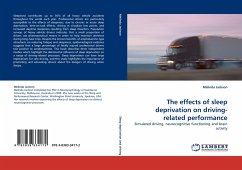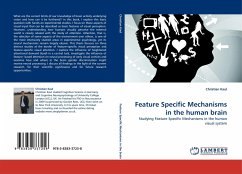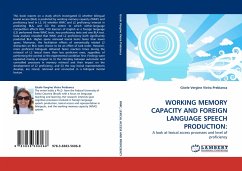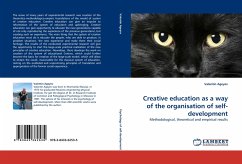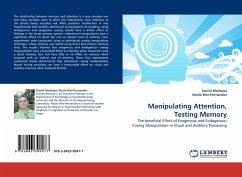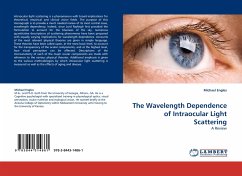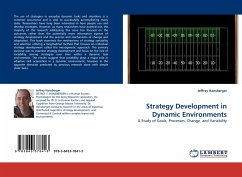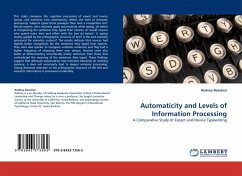
Automaticity and Levels of Information Processing
A Comparative Study of Expert and Novice Typewriting
Versandkostenfrei!
Versandfertig in 6-10 Tagen
32,99 €
inkl. MwSt.

PAYBACK Punkte
16 °P sammeln!
This study compares the cognitive processing of expert and novice typists, and examines how automaticity affects the level of semantic processing. Subjects typed three passages then took a recognition test. Would experts, who routinely apply automaticity while typing, do better at recognizing the sentences they typed than novices, or would novices who spend more time and effort with the text do better? Is typing mainly guided by the orthographic structure of text? Is the text mentally processed for semantic content? The results indicate that novices had slightly better recognition for the sent...
This study compares the cognitive processing of expert and novice typists, and examines how automaticity affects the level of semantic processing. Subjects typed three passages then took a recognition test. Would experts, who routinely apply automaticity while typing, do better at recognizing the sentences they typed than novices, or would novices who spend more time and effort with the text do better? Is typing mainly guided by the orthographic structure of text? Is the text mentally processed for semantic content? The results indicate that novices had slightly better recognition for the sentences they typed than experts. They were also quicker to recognize verbatim sentences and they had a higher frequency of choosing them over decoys. Novices were also better at differentiating semantically similar sentences from those that contradicted the meaning of the sentences they typed. These findings suggest that although automaticity may minimize demands on working memory, it does notnecessarily lead to deeper semantic processing. Typing demands attention to the orthographic structure of the text and semantic information is processed incidentally.



